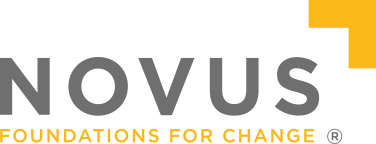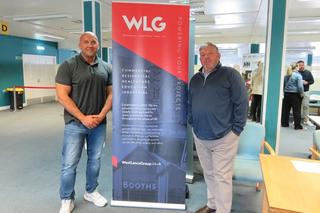Supporting women in prison education
Adult Provision

For 30 years, Novus have been working with men, women, and children of various abilities, in establishments across England and Wales providing education and employment opportunities as well as peer mentoring and several prison education programmes.
The majority of the prison estate in the UK holds male prisoners, but there are also a number of female establishments that need to be kept in consideration when thinking about supporting prison education.
Women in prison require an entirely different approach to engaging in education, and there is a unique need to provide support for them while in prison and upon release.
For a number of years we have been working to offer valuable projects and empowering opportunities to female prisoners, and we are conscious of the need to continue evolving on this front.
We're working with these women to better understand how we can intervene, providing them with life-changing education and rehabilitation in collaboration with our incredible industry and social partners.
Keep on reading to find out how Novus are supporting female learners with their education and employment.
Challenges faced by women in prison education
Women in prison often have lower levels of education with 71% of women entering prison having no qualifications. Supporting women into education and employment is vital to giving them the best chance once released and reducing reoffending rates.
We face many challenges when it comes to engaging women in prison education as over three out of five women are sent to prison for sentences less than six months. This means learners only have a limited time to engage in education alongside other key services and interventions which they often miss out on.
Many women in prison have had a negative relationship with education. Research suggests that 31% have been expelled or permanently excluded from school and this can clearly affect their experience of prison learning as well. Changing their perspective on education from a negative to a positive is key to engaging learners in education.
Providing prison learners with the support and resources necessary to be able to engage in prison services is important to equip them with the necessary skills to have better opportunities upon release.
Tailoring education programmes for women in prison
Recently, we've been working to make sure that women along with other vulnerable groups, are better able to access education while in prison. As mentioned, women have significant barriers to entry into education from shorter sentences to the lack of confidence in taking part in education. Which is why at Novus we are constantly tailoring our prison education services to be inclusive for all learners.
There are various education programmes that we provide to women in prison, including academic and vocational courses.
Since women who participate in educational programmes while in prison are more likely to find employment after release and less likely to reoffend, we encourage our female learners to participate in our vocational courses to gain industry specific skills, training and useful qualifications.
The impact of education on women's re-entry success
A popular area amongst our female prisoners is the hair and beauty courses: through them learners are gaining industry specific qualifications to support themselves and gain employment after release.
Qualifications like these give women independence and confidence not only helping them to find employment on release, avoiding them to re-enter the same cycles of abuse and domestic violence that most of the female prison population have experienced.
'Good' Ofsted rating for HMP Askham Grange
Recently, HMP Askham Grange received a 'Good' Ofsted rating where Novus provide the education provision. The female prison, received fantastic feedback in key areas of their education provision including:
- Staff training and planning
- Supporting learners in reading
- Vocational training to support learners into jobs after release
We aim to provide the best education to all learners and are constantly trying to better our education provision which has been recognised by Ofsted. The education programmes we provide are helping female prisoners at HMP Askham Grange to gain qualifications and future employment.
To find out more about the education provision at HMP Askham Grange read the full Ofsted report here.
Reading initiatives for prisoners at HMP New Hall
HMP New Hall have been using In-Cell technology to provide more reading initiatives and to engage learners in reading. Tayla Allen and Joe Brewerton, tutors at HMP New Hall, created a podcast called 'Page Turners' that aims to get rid of the barriers of reading.
The use on In-Cell technology has also helped to introduce a range of reading initiatives, including Drop Everything and Read (DEAR), reading groups and other prison wide activities.
Photo credit: HMP & YOI Askham Grange HMIP report


